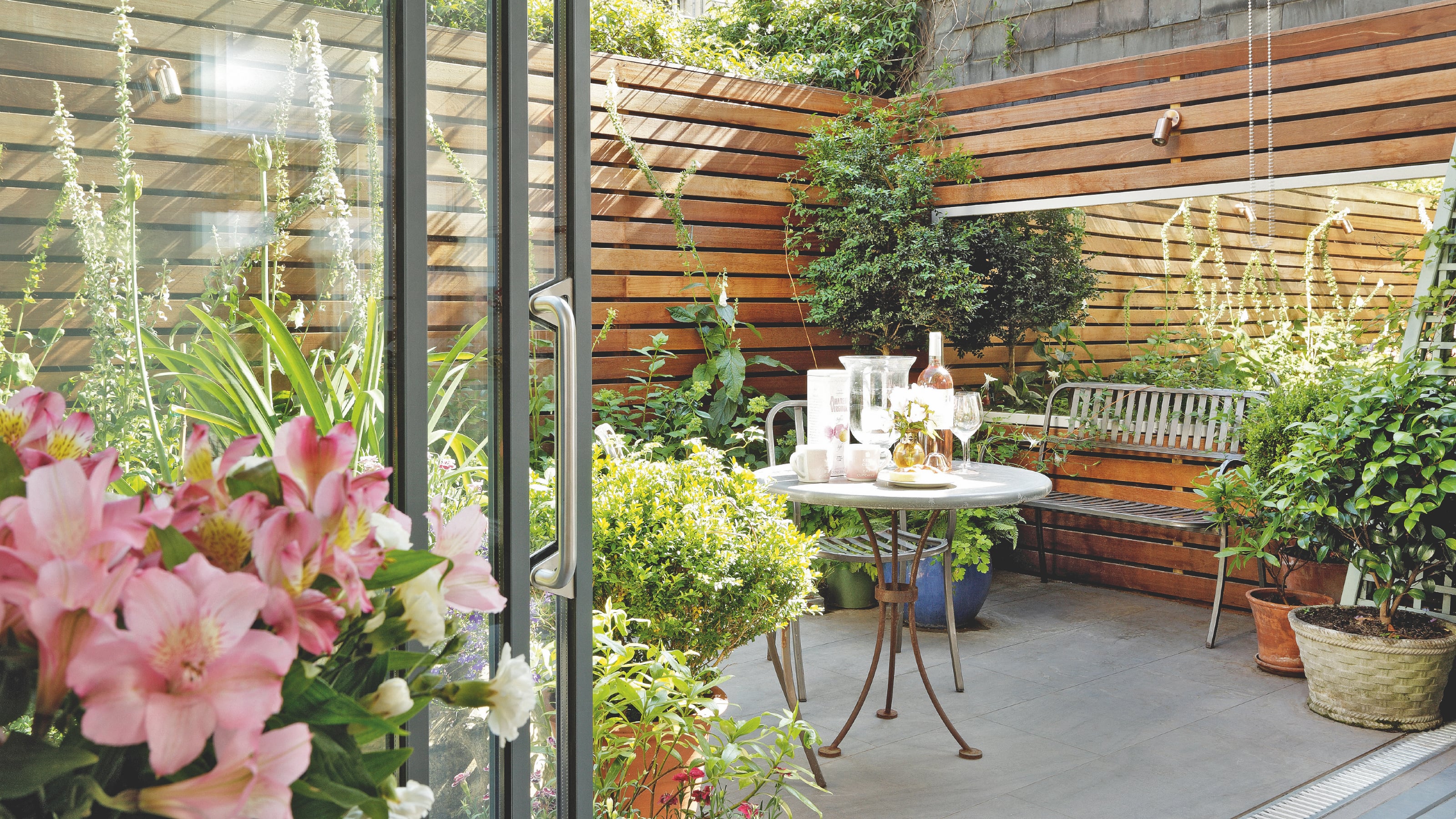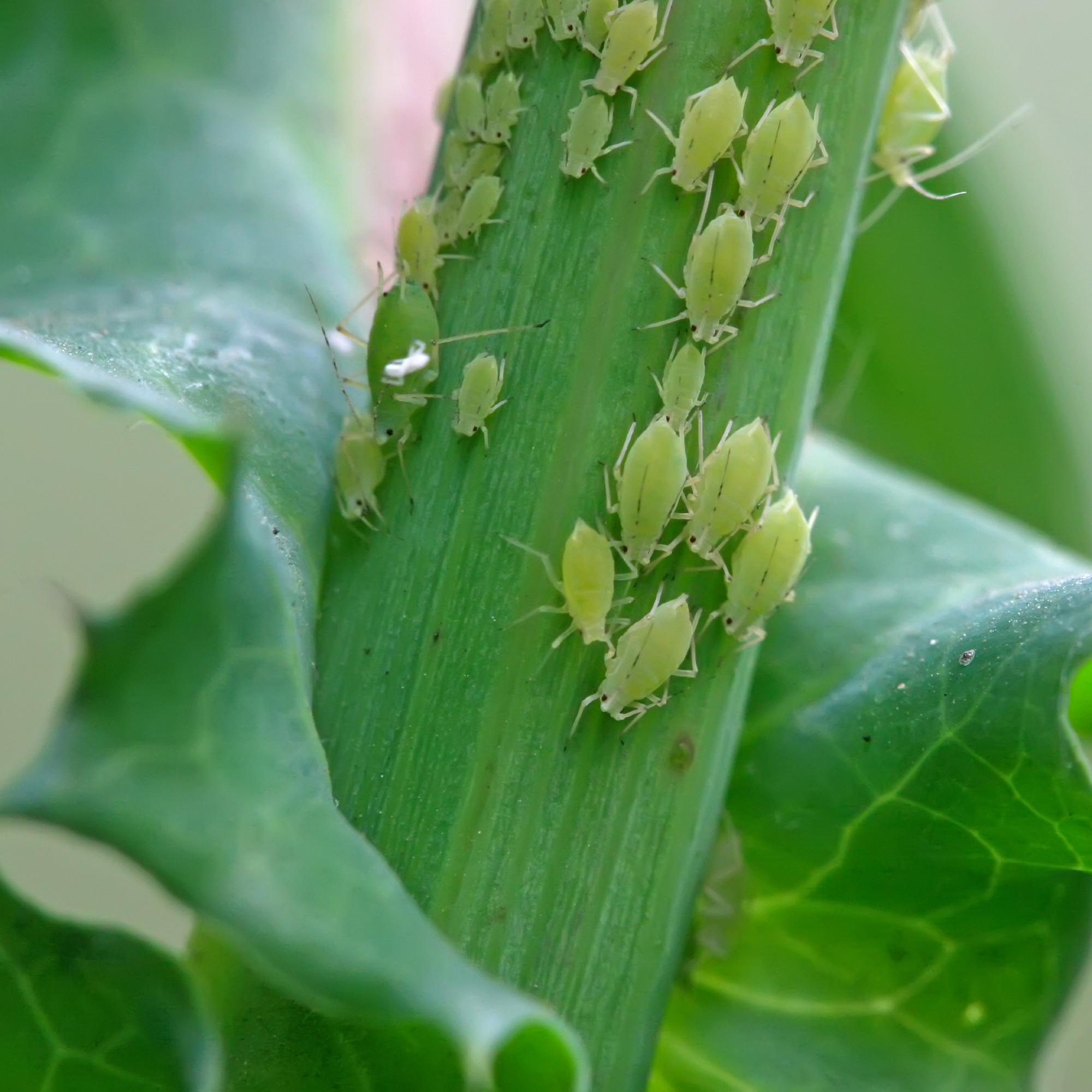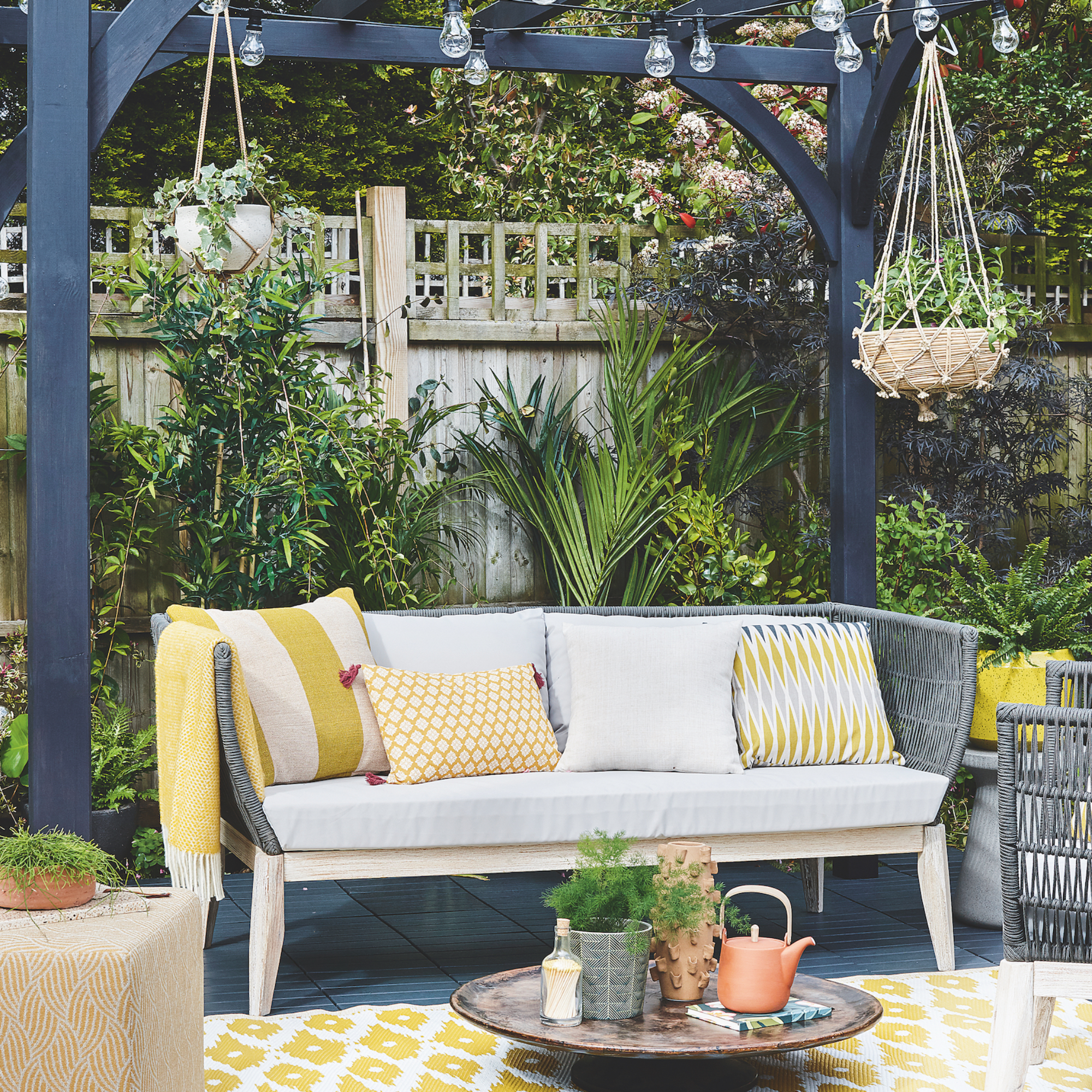Do ants harm plants in pots? The problems they can spell for flower pots and planters
Ants getting comfortable in your plant pots? Here's why you might want to act, sooner rather than later


With the warmer weather here, most of us are finally getting to soak up time in the garden, which includes admiring our potted plants. But if you've noticed an unwelcome hoard of visitors also enjoying the plant pots, you're probably anxious to find out, do ants harm plants in pots?
Ants can be a nuisance, whether scurrying across the patio or somehow finding their way into the kitchen. Although you can learn how to get rid of ants, it's important to establish whether or not they're going to cause your plants to suffer first.
We don't want our energy growing vegetables or flowers in pots to be wasted, least of all by an unsightly herd of ants. Establishing what these pests might do to your container garden ideas is vital for them to thrive all summer long.
We've asked experts, 'do ants harm plants in pots?', so we can understand what the presence of these pests means, and act accordingly. We've also gathered some expert tips on how to get rid of ants in plant pots, so you don't need to be bothered by these little nuisances going forward.
Why are there ants in my plant pots?

If your potted plants are playing house to ants, it's a likely indication that there is something other than the plant that has drawn them there. Ants go where they can find food and shelter, but they aren't interested in eating potted plants themselves. Instead, it's much more likely that there is an infestation of pest insects within the soil, which the ants have picked up on.
Aphids, mites, mealybugs, and a variety of other tiny pests that we can't really see are probably enjoying the dark, moist environment of the soil in your plant pots. And so, the ants join the party too, leading to a less than ideal situation where ant colonies start to get comfortable living inside our potted plants.
Aphids are the most likely cause of ants in your plant pots, as they secrete honeydew, a sweet substance which ants love.
Sign up to our newsletter for style inspiration, real homes, project and garden advice and shopping know-how
Do ants harm plants in pots?
But the question is, do ants harm plants in pots? Or is it safe for them to roam in our potted plants freely?
Though ants don't cause direct harm to potted plants - because they don't eat them - they can cause indirect harm to your plants in a couple of different ways. Firstly, if an entire colony decides to make a home within the pot, this is going to disrupt the plant's root structure, leaving the plant more prone to wilting.
Secondly, ants will try to protect aphids from predators such as ladybirds and beetles, so they can keep enjoying their honeydew. And aphids can cause direct damage to plants, because they feed on the sap found in leaves and stems.
'Ants are not usually harmful to potted plants but can indicate other issues like aphid infestations,' summarises Hannah Rowson, Assistant Garden Centre Manager, J. Parker's. 'Also, if ants decide to build a nest in your flower pots, they can disturb the roots, though this is unlikely as pots are watered so often.'

Assistant Garden Centre Manager, Hannah Rowson, has been with J.Parker's for over 8 years, one of the UK’s leading gardening and bulb providers.. RHS (Royal Horticultural Society) qualified, Hannah is a fountain of knowledge for all things gardening and horticulture and has even had her garden designs displayed at RHS Tatton Flower Show.
So, ants can in fact cause damage to plants in pots, despite them not directly harming the plant itself. You may also just prefer not to have ant colonies living inside your plant pots, because they're a bit unsightly and come in such high numbers.
There are some steps you can take to keep ants out of plant pots, which will also help with getting rid of aphids too.

Aphids
How to keep ants out of plant pots
To keep ants out of plant pots, there are a few different methods you can try. Firstly, you could use a natural repellent, such as citrus peels, cinnamon, peppermint oil, or coffee grounds - an ideal solution if you've been wondering what to do with leftover coffee grounds as well. Ants don't like the smell of any of these things, so if they're present in plant pots, they'll be more likely to move on.
White vinegar is another natural ant repellent. Aside from not liking the smell, it can kill ants in higher doses.
Another option is to use a form of biological pest control, such as a nematode. 'Nematodes are small but mighty creatures that do not kill the ants, but simply disrupt their nests and encourage them to pack up and leave the treated area,' says Matt Martin, Nemasys Beneficial Nematodes. 'Ants do not tolerate nematodes so will quickly move on and away from the garden.'
You can find nematodes that were made to deal with specific pests, such as ants (or slugs, if you want to know how to get rid of slugs too). By introducing the nematode into the soil, pest populations such as ants won't be able to survive.

There are also sticky ant traps you can buy that will work as well. These are usually little bits of plastic that are placed into the plant pot, with a sticky surface that the ants will get stuck on when they move across it. This is one of the less humane options for how to get rid of ants, and we'd recommend trying the other methods first. Plus, the ant trap will be visual, which can spoil the aesthetic of plant pots.
You might not feel the need to get rid of the ants unless they are starting to dominate, and causing visible distress to your plants. They can be a harmless part of a garden's ecosystem, and even valuable. 'Ants play a beneficial role in the ecosystem by aerating the soil, breaking down organic material, and even controlling other pest populations,' Hannah says.
FAQs
Why are there so many ants in my garden?
'If there are a lot of ants in your garden, it's probably providing an ideal environment for them,' gardening expert Hannah says. 'Ants are drawn to places where they can find food, water, and shelter. Gardens often provide all three, with their abundance of plants, moisture, and small crevices.'
Gardens with a high plant density will unfortunately attract a lot of ants. Aphids are a primary food source for ants, and as aphids feed off the sap from healthy foliage - healthy plants will eventually lead to the presence of ants.
Things you can do to minimise their presence include keeping your garden free of food and water whenever possible, as this will encourage the ants to move elsewhere. It's helpful to know how to clean garden stones properly, so ants aren't encouraged to make a home in cracks and crevices.
What do ants hate the most?
'Ants are generally bothered by strong scents and substances that disrupt their trails,' says Hannah. 'For instance, they tend to avoid vinegar, citrus peels, and essential oils like peppermint and eucalyptus. These fragrances can interfere with their ability to communicate and navigate, making them effective natural repellents.'
Anything with a fragrant scent is disliked by ants, so this can include coffee grounds as well. You can also try lacing black pepper, cayenne and garlic in plant pots to encourage ants to move on.
So now you know the answer to 'do ants harm plants in pots?', will you be doing anything to tackle your ant problem? Remember, if an ant colony has made a home in a potted plant, sooner or later the plant will start to suffer, so it's always best to tackle the problem head-on.

Katie has been writing freelance since early 2022, specialising in all things homes and gardens, following achieving a Masters in Media and Journalism. She started out writing e-commerce content for several of Future’s interior titles, including Real Homes, Gardeningetc, Livingetc, and Homes and Gardens. Since then she’s been a regular contributor on Ideal Home’s digital team, covering news topics, how-to guides, and product reviews.